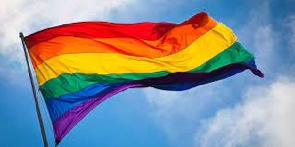The Vatican approval of blessing for same-sex couples has elicited opposition from episcopal conferences across Africa. And it has become pertinent to ask: Why do these bishops detest homosexuals? What crime have gays committed? Why are these clerics against the union of persons of the same sex? Following the authorization of blessing for homosexual unions, ten conferences of bishops from different parts of Africa have issued statements in defiance of the Vatican directive.
From Cameroon, the bishops declared: "Faithful to the constant teaching of Ecclesial Tradition which declares acts of homosexuality intrinsically disordered and contrary to the natural law (Catechism of the Catholic Church n. 2357), we, the Bishops of Cameroon, reiterate our disapproval of homosexuality and homosexual unions. Consequently, we formally forbid all blessings of "homosexual couples" in the Church of Cameroon". If I may ask: What do bishops in Cameroon know about the "Ecclesial Tradition" that the Vatican does not know? Why can't these clerics abandon their 'disordered' and 'mistaken' idea of the natural law? In the same vein, the bishops in Malawi stated: "We direct that for pastoral reasons, blessings of any kind and for same-sex unions of any kind, are not permitted in Malawi". From Zambia, the bishops said: "To avoid any pastoral confusion and ambiguity as well as not to break the law of our country which forbids same-sex unions and activities, and while listening to our cultural heritage which does not accept same-sex relationships. The guidelines in Fiducia Supplicans are for further reflection and not for implementation in Zambia”.
Now, why should bishops in Malawi issue a counter directive? Was that necessary? The statement from the bishops in Zambia is a piece of pastoral confusion because of the conflicting signals. While the Vatican declaration sanctions love, the statement from the bishops signals hate and hostility. The bishops have demonstrated a lack of 'listening to our cultural heritage' because the African culture is dynamic and accommodative. More importantly, unlike the pope, these clerics have shown their inability to listen to the "signs of the times".
Furthermore, bishops from other African countries have issued similar statements. From Nigeria, the bishops said: "There is no possibility in the Church of blessing same-sex unions and activities, permitting such blessings would go against God's law, the teachings of the Church, the laws of our nation, and the cultural sensibilities of our people". And from Burkina Faso & Niger, the bishops stated: "Catholic doctrine on marriage does not change, and the Church does not approve of irregular or same-sex unions”. The statement from the Kenya Conference of Catholic Bishop partly says "The document does not in any way approve of ‘Same-sex Marriages’ nor try to give a back-door recognition of such a union. It does not seek an alternative ‘union blessing’ to substitute a Sacramental marriage...This Document does not change in any way the understanding of Marriage as a Sacrament in the Church, an indissoluble union between a man and a woman, for life". The Catholic Bishops of South Africa, Botswana, and Eswatini said: “The suggestions offered by the declaration may be taken as a guide with prudence, we will guide further on how such a blessing may be requested and granted to avoid the confusion the document warns against. The Ghana Catholic Bishops Conference noted: "This Declaration does not give Catholic priests the permission to bless same-sex marriages...The document defines marriage as an “exclusive, stable, and indissoluble union between a man and a woman, naturally open to the generation of children". The bishops from Zimbabwe said: "In respect of the law of the land, our culture and for moral reasons, we instruct pastors to desist from actions that may be deemed as the blessing of same-sex unions bringing confusion and even scandal to our people". The statement by bishops from Uganda partly says "The blessing which the Declaration says could be given to everyone refers to prayers that people may request for. For those in a state of sin, the prayers are meant to lead them to conversion. Therefore, the prayers for persons in same-sex relationships are not intended to legitimize their way of life, but to lead them on the path of conversion”. Cardinal Ambongo of Congo, President of Symposium of Episcopal Conferences of Africa & Madagascar stated, "The ambiguity of this declaration—which lends itself to many interpretations & manipulations—is causing much perplexity among the faithful & I believe that...we need to speak out clearly on this issue to give clear guidance to our Christians". From Nigeria to Congo, the bishops came out categorically against blessing homosexual or same-sex unions. They issued statements that reinforced hatred and oppression of gays. Unlike their pope, the bishops have displayed a poor understanding of the law of God, the teaching of the church, and the cultural sensibilities of the people. Imagine the bishops in Burkina Faso and Niger claiming that the catholic doctrine on marriage does not change. Really? The fact is that the doctrine has changed. The Vatican's approval of blessing for same-sex couples signals that shift and change.
In conclusion, the statements from catholic bishops in Africa drip with hatred and unwarranted antagonism towards homosexuals. The statements contain misrepresentations of African cultural norms and heritage. African bishops should rethink their hostility and opposition to homosexuality. They should show thoughtfulness in their positions and propositions. African bishops should understand that cultures are dynamic, and so also are religions and religious teachings. African bishops should know that, from time to time, societies change. That social attitudes change. Societies make cultural shifts, and what used to be forbidden becomes acceptable. What used to be prohibited becomes a norm. And in this case, what used to be considered a sin is approved and blessed.
So, African bishops should eschew hatred and prejudice against gay people. They should preach love, sanctify respect for homosexuals and a blessing for same-sex unions.
Leo Igwe is a humanist from Nigeria
Opinions of Sunday, 31 December 2023
Columnist: Leo Igwe















